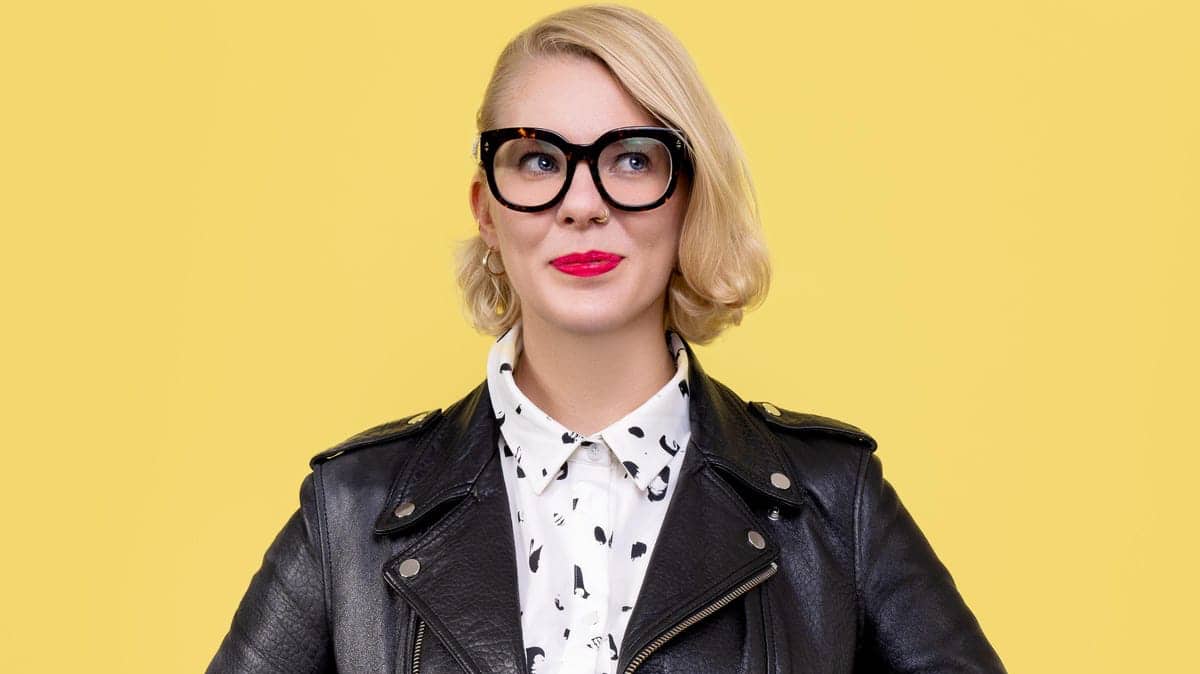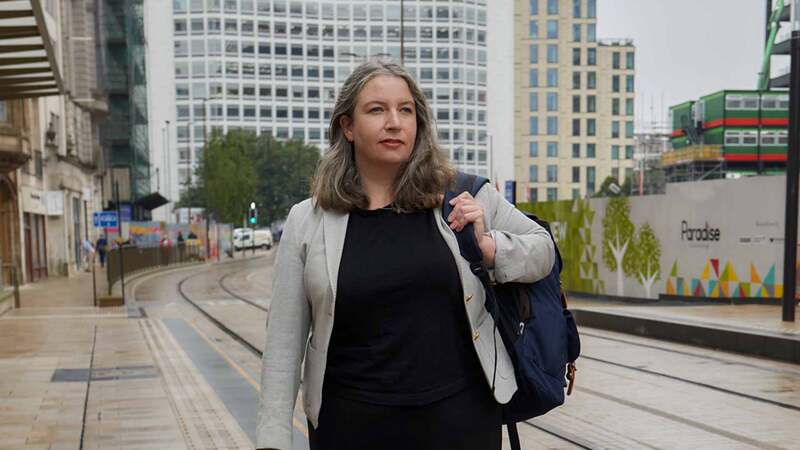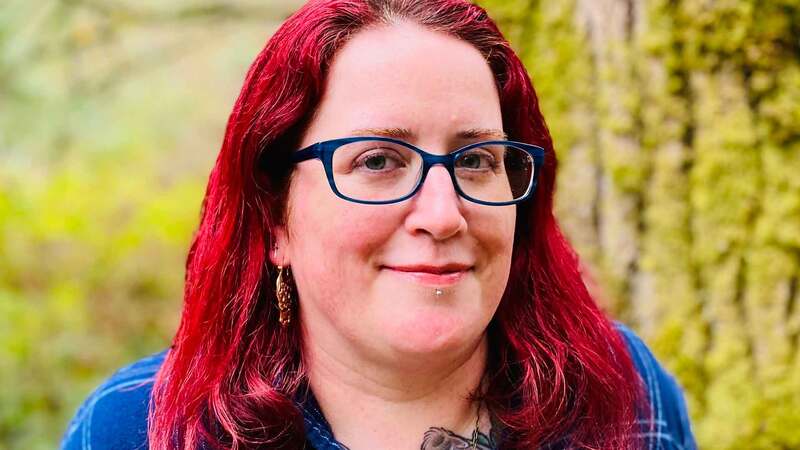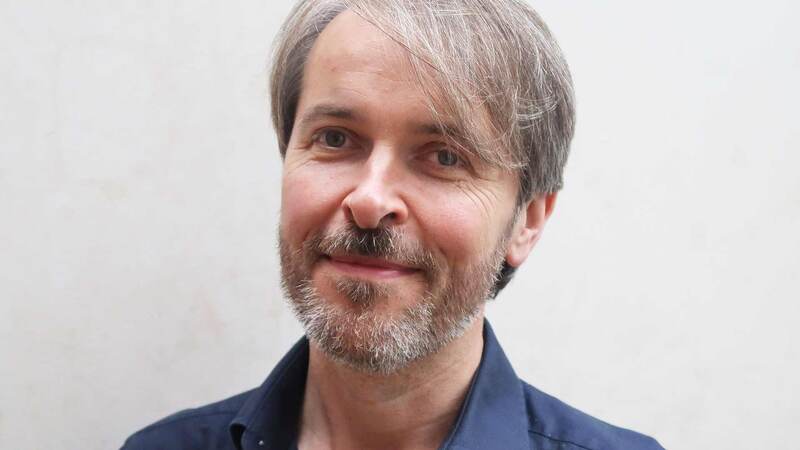You are viewing your 1 free article this month. Login to read more articles.
Emma Gannon | 'I really want to us to fight back against the algorithm of life'
 Caroline Sanderson
Caroline SandersonCaroline Sanderson is a non-fiction writer, editor and books journalist. Her books include a travel narrative, A Rambling Fancy: in the F ...more
Emma Gannon’s latest book (Dis)connected calls for a re-injection of hope, humanity and heart into our online lives and interaction

Caroline Sanderson is a non-fiction writer, editor and books journalist. Her books include a travel narrative, A Rambling Fancy: in the F ...more
Five years ago, when in her late twenties, Emma Gannon released her first book: Ctrl Alt Delete: How I Grew Up Online. It’s a funny and thoughtful memoir which charts her formative experiences on the internet as a Millennial woman born in the same year as the World Wide Web.
Now, having since built a highly successful career as an author, speaker, novelist and host of an award-winning podcast, Gannon returns to the same territory in her new book: Disconnected: How to Stay Human in an Online World. It’s a short, pithy manifesto in which she ponders whether the internet is increasingly losing its humanity, and provides practical prompts as to how we can have a better experience with the tools we plug into every single day.
I really want to us to fight back against the algorithm of life: for example by going into a bookshop and stumbling across a hidden gem; or rediscovering an old song we loved 20 years ago.
When we chat via Zoom, I ask Gannon, who has a combined following of more than 100,000 on Twitter and Instagram, why she was keen to return to the subject. “It’s something I’ve been thinking about for a while—so much has happened since I wrote Ctrl Alt Delete. It might only be five years ago but it feels like hundreds of internet years. And while a lot of what I wrote then still chimes with me I also wanted to look at how things have changed, and how our behaviour on the internet now isn’t always great.”
Gannon admits to a certain wistful feeling for the early days of her life online she described in Ctrl Alt Delete. “It was all so innocent and sweet. We were writing on each other’s Facebook walls, recommending songs. Hanging out on MySpace and sending pictures to each other. And Twitter was a place where you told people what you were eating for breakfast. I guess there’s not much point in being too nostalgic, but with hindsight I’m arguing that maybe we can get a bit of that back.” And indeed in Disconnected, Gannon looks at how we can slow down and go back to basics online; how we can avoid the temptation always to be “scaling” or “growing” our online followings, and in the process remind ourselves of the importance of “hope, humanity and heart” in our online interactions.
“The internet is a very individualistic place. I’ve spoken a lot in the past about making yourself stand out and building your brand online, and I’ve done these things myself. But it can go too far if you prioritise your internet self at the expense of your human self,” says Gannon. In Disconnected she also states her desire not to feel as if she is being influenced 24 hours a day. “I started to feel as if I didn’t know who I was anymore without an Amazon recommendation, or a Spotify playlist that had been created for me,” she writes. “I really want to us to fight back against the algorithm of life: for example by going into a bookshop and stumbling across a hidden gem; or rediscovering an old song we loved 20 years ago.” The result is a book about technology that also packs a surprising amount of spirituality.
However Gannon is quick to point out that Disconnected is not a book about digital detox—“because I’ve read a lot of those books, and anyway I don’t want to log off. Even though I’m a privileged person who probably could afford to go offline for a bit, I can’t just put my phone in a drawer for a month and disappear; I don’t think anyone can.” Nevertheless she has noticed that an increasing number of her friends and peers are leaving Facebook, Twitter and LinkedIn, and Disconnected tries to unpick why they are doing so. While the book will undoubtedly have strong appeal for Millennials, Gannon also hopes it will also be read by younger people because she now wishes someone had told her: “You can have a very successful online life and career and a million followers without being absolutely chained to your phone”.
While Gannon didn’t want to write a book about the pandemic, she does acknowledge that the increasing amount of time we have all spent online during the past 18 months has profoundly fed into her thinking. “I think we did begin to feel like machines, tapping and typing away, churning things out at our laptops.” This is a way of life that, as Gannon discovers to her own cost, saps creativity. “During the lockdowns of last year I was so creatively blocked it was actually really scary,” she tells me. “I realised how dependent I am on having a life outside my house; how conversations with friends, going on the bus, sitting in cafés overhearing conversations, and being in nature are the things that make me creative.”
The day before our interview, Gannon posts a brief tweet about her wedding earlier that week. This prompts me to ask her how we draw the boundaries between our online selves, and our offline ones. “I talk about exactly this in the book as well, because one of the things that makes us feel good as people is feeling ‘seen’ and understood. And you can now feel ‘seen’ by 100,000 people on the internet, but perhaps it’s still only our offline friends by whom we are both ‘seen’ and understood.” Gannon tells me that alongside her public Instagram account— “which is my career and my business essentially”—she also has a private one with only 100 followers and it is here that she posted all her wedding photos. “Because do any of us really want to be sharing every aspect of our lives with our work colleagues?” I tell her that as an Instagram newbie, I am getting genuine pleasure from posting photos of books and flowers and Cotswold vistas, while hardly clocking how many followers I have. “Exactly! It’s good to have a little bit of a Marie Kondo check-in about what is actually sparking joy in terms of where you are spending your time online.”
The pleasures of books and flowers are of course worlds away from the trolling and polarised nastiness that so many face on social media, and it is here above all, argues Gannon, that we need to reintroduce humanity to our online interactions. “We’ve become quite extreme: everything has to be, I agree with you, or I don’t agree with you. On Twitter, it can look as if things are speeding forward because everyone is speaking and having opinions at the speed of light. But no one is actually having a conversation. In one of my prompts in the book, I suggest that if you see something online that makes you uncomfortable and want to say something to someone, why not write them a proper personal message? Because I just don’t know how helpful it is to have these stunted interactions publicly.”
And yet, Gannon still believes in uncomfortable conversations. “I talk in the book about how I prefer a constructive call-out culture to a cancel culture. I actually enjoy being corrected or told how I can improve. So I think we need to be brave and welcome being called out without being defensive about it.” It all comes back to the subtitle of Disconnected which exhorts us to “stay human in an online world”. As Gannon puts it: “In the digital world, just as in the offline world, the most human thing is to misunderstand, and to contradict oneself. Human beings are complicated, irrational people, but this is exactly what distinguishes us from robots.”
Book extract
This book is for people who feel overwhelmed, or feel engulfed by our fast-paced digital world. It’s about how to slow down, go back to basics, and avoid the temptation of “bigger, better, faster!”, declining the temptation to “scale” or”‘grow” absolutely everything you do, refusing to monetise every inch of your life, and how to bring more of a human feel to the internet again. There can be so much substance and growth in nurturing your online space. This book is for everyone. It’s about being more human, and more ourselves, in a world that seems to be interrupting and distracting us from that path constantly. This book is about how we can enjoy the delights of the world wide web without being stuck in it like a trapped fly, connect more deeply with each other and realise that we are enough. Target us all you want, we are already enough.









